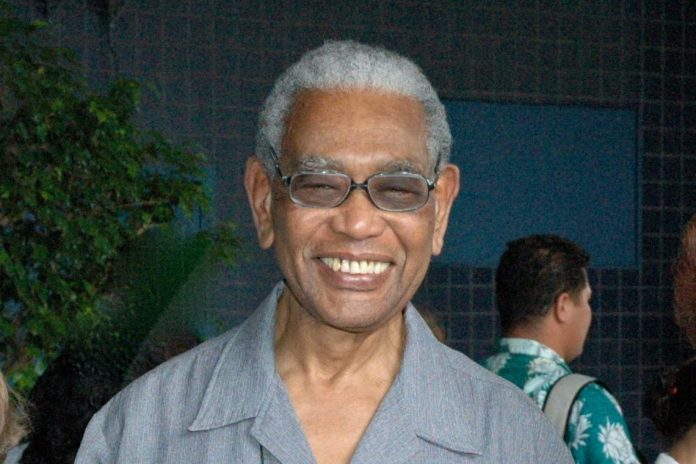The World Council of Churches (WCC) has paid tribute to its former general secretary, Rev. Dr Philip Potter, who was born on 19 August 1921, and led the council from 1972 to 1984, a time of global religious and socio-political change.
“The first WCC general secretary from the global South, he provided decisive leadership to the council in this time of change, which drew upon his deep spirituality, and his Christian faith, and for this we give thanks to God,” said WCC acting general secretary Rev. Prof. Dr Ioan Sauca.
“Philip Potter’s influence extended well beyond his 12 years as WCC general secretary,” said Sauca in a letter to Potter’s wife, Bishop emeritus Bärbel Wartenberg-Potter, to mark the 100th anniversary of Potter’s birth.
“From the WCC’s founding assembly in 1948 where he addressed the assembly on behalf of the youth delegates, through his work as a staff member in the WCC youth department and later as director of the Commission on World Mission and Evangelism, before he became WCC general secretary, Philip Potter was a pivotal figure in the ecumenical movement, and remained so after concluding his mandate as general secretary,” the WCC acting general secretary said.
Sauca recalled in his letter how Potter, who died in 2015, had been WCC general secretary at a time of controversy over the WCC’s Programme to Combat Racism, whose Special Fund gave humanitarian grants to liberation movements in Southern Africa.
“We remember with gratitude Philip Potter’s uncompromising stand against racism, often in the face of vigorous criticism from some of the council’s larger member churches,” said Sauca. “His legacy is a continuing mandate for us today, where recent events have underlined just how much the scourge of racism remains a challenge to the world and to the global Christian fellowship.”
Philip Potter was born on the Caribbean island of Dominica. After initially working in a lawyer’s chambers and as a legal assistant to the attorney general of Dominica, he trained for the Methodist ministry in Jamaica and later in Britain. He represented the Jamaican Student Christian Movement at the second World Conference of Christian Youth in Oslo 1947, a turning point in his life which propelled him into the international ecumenical movement.
As well as his time in the WCC youth department from 1954 to 1960, and as director of the WCC’s Commission on World Mission and Evangelism from 1967 to 1972, immediately before taking up his position as WCC general secretary, Potter worked as a Methodist missionary in Haiti and for the Methodist Missionary Society in London.
Throughout his life, Potter was committed to supporting youth in the ecumenical movement, and served as chair of the World Student Christian Federation from 1960 to 1968.
Potter was married to Doreen (Cousins), a noted musician and composer, from 1956 until her death in 1980. He married Bärbel von Wartenberg in 1984 and moved to the Caribbean with her in 1985 to work as a lecturer and university chaplain until 1990. The couple then settled in Germany, where Potter died on 31 March 2015 at the age of 93.
Sauca praised Potter for his commitment to dialogue with people of other faiths, to the unity of the church, and to concerns of church and society, and the way in which he helped the ecumenical fellowship develop a truly global understanding of mission.
“We particularly remember Philip Potter’s unceasing support for women in leadership positions in the WCC, his statement in 1974 that ‘sexism, like racism, is a sin,’ and the leadership that led to the study and world conference on the Community of Women and Men in the Church,” said Sauca.
“Above all, however, we remember Philip Potter’s love for the Bible, and the biblical exposition that often formed the core of his reports to the WCC governing bodies,” he wrote.
WCC, oikoumene.org














